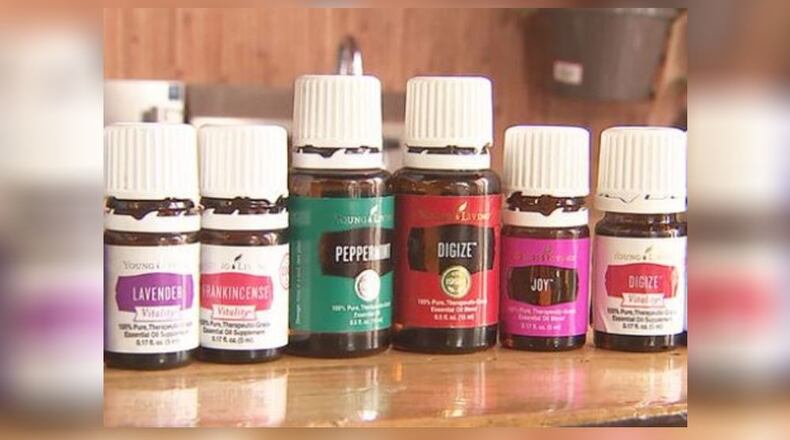"Eczema just wasn't a good enough answer. How did I just 28 years later start getting eczema? I didn't put two and two together until I got a massage once and they used lavender behind my ears and my ears were on fire," Meyers recalled in an interview with our sister station, WSOC-TV.
Meyers said her reaction stopped as soon as she quit using the lavender oil, but she continues to use other oils daily.
“I put one drop in my water and it’s a really good way to wake up and start the day,” she said.
Poison control expert, Dr. Michael Beuhler, said most oils are minimally toxic but some oils, like wintergreen, are extremely dangerous.
“Like medications they need to be treated with respect, if not they can cause harm,” Beuhler told WSOC-TV.
“The ingestion of a single teaspoon of this in a child is the equivalent of taking about a hundred aspirin," Beuhler said. "So that could easily kill a child and it does it quickly too,"
He strongly recommended against ingesting or applying any oils to the skin without thorough research.
“There isn’t any government oversight over the certifying process. Just because it is certified from a plant, it doesn’t mean it’s safe,” Beuhler said.
The U.S. Food and Drug Administration does not regulate essential oils and warns shoppers to be careful of any claims to prevent, treat or cure diseases or health conditions.
“You don't always know what you're getting or know exactly what is in there and then there's the problem that every human is different,” Beuhler said. “Just because it is certified, yes this is 100 percent or 98 percent oil wintergreen, that doesn’t make it safe. It just means you’re getting what you think you’re getting.”
Amy Williams said she has been using and selling oils for a large essential oil company for a decade. She credited essential oils for the improvement in her overall mood and health.
She also warned that many bottles sold at discount stores advertised at a low price could cost you your health.
“Oil you get in a bottle for a dollar, it’s not good. You shouldn’t do anything with that oil. I wouldn’t even put it on an animal,” she said.
Beuhler said independent research is limited, so he recommends reading the information available through the FDA and NIH.
